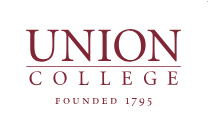Contact A Librarian
Chat with a Librarian 
Look for our chat icon on the Schaffer Library Homepage. If a librarian is available, we're happy to chat with you. If we're not available, this icon will allow you to submit a research help ticket and we'll get back to you as soon as possible.
Meet with a Librarian
Still have questions?
Click the link above to request a meeting with a librarian at the Schaffer Library.
If you need help using the online scheduler, you can email us to set up an appointment at reference@union.edu.
The Book or Article I'm Looking for isn't Available at Union
Use interlibrary loan to request books and articles from other institutions if Schaffer Library doesn't have access to them.
Getting Started
Use Primo to search through almost everything the library owns.
-
If you know the title of the resource you are looking for, type the title in Primo.
-
If you the topic you are looking for, use keywords.
An Example of Keywords: Slavery AND Medicine
-
Keyword Tips:
-
Use synonyms. For example, you might use "medical care" instead of medicine. If you are interested in a specific type of medicine, use more specific keywords (e.g. slavery AND midwife).
-
Putting quotation marks around a phrase will tell Primo to keep those words together. For example: "medical care."
-
Using an * at the end of a word such as medic* will bring back everything with that root (medical, medics, medicine, medicinal, medicines).
-
Look at the subjects for a book that is of interest to you. Follow the subject links to more resources on the topic.

Books as scholarly sources
Do books count as scholarly sources?
Scholarly books are written for scholars/researchers in the author's field, and are typically intended to share research findings and contribute to the ongoing scholarly "conversation." Textbooks, encyclopedias, and books published for commercial audiences often do not count as scholalry.
Consider these questions when you're deciding if a book is academic or not:
-
Who is the author? The author should be an expert in the topic of the book with graduate degrees and preferably a current position at a research institution
-
Where does the information come from? There should be a list of cited sources and other evidence in the book to support the arguments or findings.
-
Who is the book written for? The book should not be written for laymen.
-
Who published it? Academic book publishers are often university presses, like Oxford University Press, but you will encounter other academic publishers, such as Routledge and Palgrave.
Background Material
Credo Reference - online library with publications on a variety of topics.
The following reference books are authoritative, informative, and concise. Of the three, authoritative counts the most.
-
Atlas of African-American History by
Call Number: [Ref] E185 .C55 2007ISBN: 9780816067138Publication Date: 2008-01-30 -
Encyclopedia of African American History, 1619-1895 by
Call Number: [Ref] E185 .E545 2006 v.1-3ISBN: 0195167775Publication Date: 2006-04-06 -
The Underground Railroad by
Call Number: [Ref] E450 .S65 2008 v.1-2ISBN: 9780765680938Publication Date: 2008-05-15 -
World of a Slave by
Call Number: E441 .W895 2011 v.1-2ISBN: 9780313349423Publication Date: 2010-12-13

